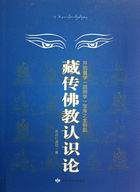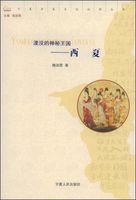So far, then, as this criticism is occupied in confining speculative reason within its proper bounds, it is only negative; but, inasmuch as it thereby, at the same time, removes an obstacle which impedes and even threatens to destroy the use of practical reason, it possesses a positive and very important value.In order to admit this, we have only to be convinced that there is an absolutely necessary use of pure reason- the moral use- in which it inevitably transcends the limits of sensibility, without the aid of speculation, requiring only to be insured against the effects of a speculation which would involve it in contradiction with itself.To deny the positive advantage of the service which this criticism renders us would be as absurd as.to maintain that the system of police is productive of no positive benefit, since its main business is to prevent the violence which citizen has to apprehend from citizen, that so each may pursue his vocation in peace and security.That space and time are only forms of sensible intuition, and hence are only conditions of the existence of things as phenomena; that, moreover, we have no conceptions of the understanding, and, consequently, no elements for the cognition of things, except in so far as a corresponding intuition can be given to these conceptions; that, accordingly, we can have no cognition of an object, as a thing in itself, but only as an object of sensible intuition, that is, as phenomenon- all this is proved in the analytical part of the Critique; and from this the limitation of all possible speculative cognition to the mere objects of experience, follows as a necessary result.At the same time, it must be carefully borne in mind that, while we surrender the power of cognizing, we still reserve the power of thinking objects, as things in themselves.* For, otherwise, we should require to affirm the existence of an appearance, without something that appears- which would be absurd.Now let us suppose, for a moment, that we had not undertaken this criticism and, accordingly, had not drawn the necessary distinction between things as objects of experience and things as they are in themselves.The principle of causality, and, by consequence, the mechanism of nature as determined by causality, would then have absolute validity in relation to all things as efficient causes.I should then be unable to assert, with regard to one and the same being, e.g., the human soul, that its will is free, and yet, at the same time, subject to natural necessity, that is, not free, without falling into a palpable contradiction, for in both propositions I should take the soul in the same signification, as a thing in general, as a thing in itself- as, without previous criticism, I could not but take it.Suppose now, on the other hand, that we have undertaken this criticism, and have learnt that an object may be taken in two senses, first, as a phenomenon, secondly, as a thing in itself; and that, according to the deduction of the conceptions of the understanding, the principle of causality has reference only to things in the first sense.We then see how it does not involve any contradiction to assert, on the one hand, that the will, in the phenomenal sphere- in visible action- is necessarily obedient to the law of nature, and, in so far, not free; and, on the other hand, that, as belonging to a thing in itself, it is not subject to that law, and, accordingly, is free.Now, it is true that I cannot, by means of speculative reason, and still less by empirical observation, cognize my soul as a thing in itself and consequently, cannot cognize liberty as the property of a being to which I ascribe effects in the world of sense.For, to do so, I must cognize this being as existing, and yet not in time, which- since I cannot support my conception by any intuition- is impossible.At the same time, while I cannot cognize, I can quite well think freedom, that is to say, my representation of it involves at least no contradiction, if we bear in mind the critical distinction of the two modes of representation (the sensible and the intellectual) and the consequent limitation of the conceptions of the pure understanding and of the principles which flow from them.Suppose now that morality necessarily presupposed liberty, in the strictest sense, as a property of our will; suppose that reason contained certain practical, original principles a priori, which were absolutely impossible without this presupposition; and suppose, at the same time, that speculative reason had proved that liberty was incapable of being thought at all.It would then follow that the moral presupposition must give way to the speculative affirmation, the opposite of which involves an obvious contradiction, and that liberty and, with it, morality must yield to the mechanism of nature; for the negation of morality involves no contradiction, except on the presupposition of liberty.Now morality does not require the speculative cognition of liberty; it is enough that I can think it, that its conception involves no contradiction, that it does not interfere with the mechanism of nature.But even this requirement we could not satisfy, if we had not learnt the twofold sense in which things may be taken; and it is only in this way that the doctrine of morality and the doctrine of nature are confined within their proper limits.For this result, then, we are indebted to a criticism which warns us of our unavoidable ignorance with regard to things in themselves, and establishes the necessary limitation of our theoretical cognition to mere phenomena.
同类推荐
History of the Peloponnesian War
The State of Greece from the earliest Times to the Commencement of the Peloponnesian War THUCYDIDES, an Athenian, wrote the history of the war between the Peloponnesians and the Athenians, beginning at the moment that it broke out.汇聚授权电子版权。
热门推荐















